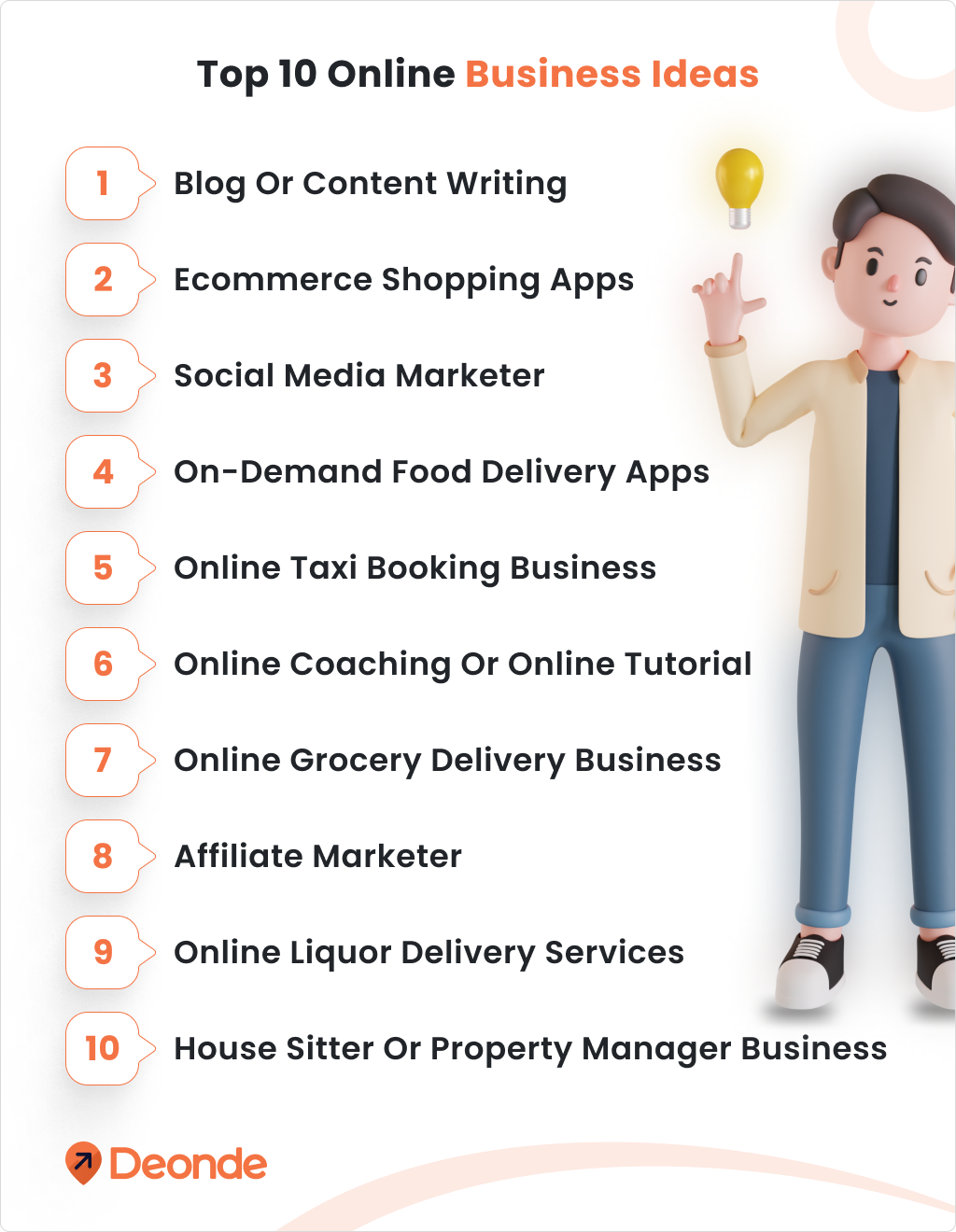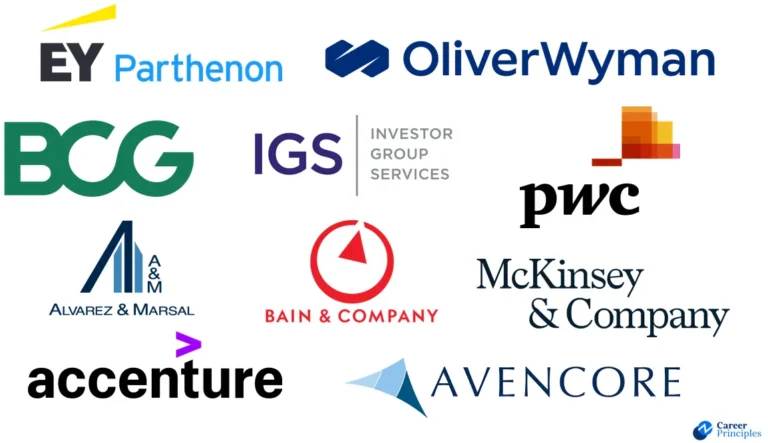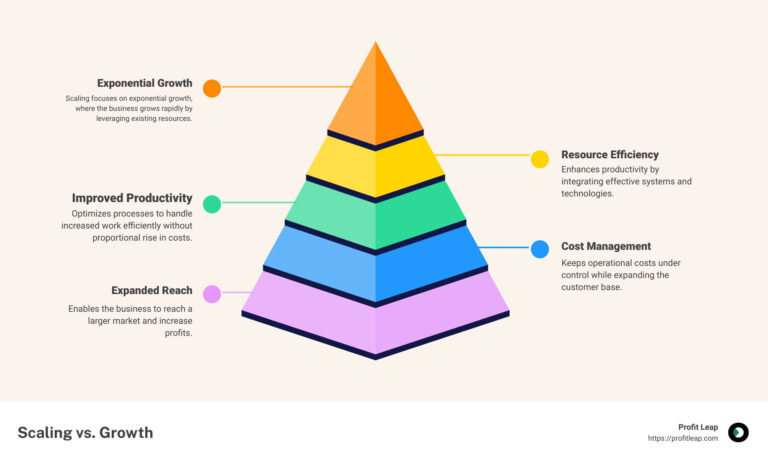Best Online Business Ideas For Beginners
Did you know that nearly 90% of internet users shop online? With this vast audience, venturing into online businesses has never been more promising. Whether it’s selling eco-friendly products or offering online courses, the opportunities seem endless, especially for beginners eager to dip their toes into the world of e-commerce.
Over the past decade, the concept of starting an online business has evolved tremendously. Gone are the days when you needed a massive budget to launch; now, platforms like Etsy and Shopify enable budding entrepreneurs to start with minimal investment. According to recent data, e-learning is expected to hit $375 billion by 2026, underscoring a golden opportunity for those interested in educational content creation.

Best Online Business Ideas for Beginners
Starting an online business can be exciting and rewarding. For beginners, there are many options that require little to no investment. The most popular ones include affiliate marketing and blogging. Affiliate marketing lets you earn commissions by promoting products. It’s simple, and you don’t even need to own products.
Blogging is another great idea. You can share your thoughts or experiences on specific topics. Over time, you can make money through ads or sponsored posts. The key is to choose topics people are interested in. With consistent effort, your blog can become a nice source of income.
If you enjoy teaching, online tutoring could be perfect. You can help students with subjects they find tough. Using platforms like Zoom, lessons can be conducted easily. This business is flexible; you set your own hours. Plus, there’s always a demand for good tutors.
Another exciting option is dropshipping. In this business, you sell products without holding stock. A third party handles storage and shipping. This means you can run a store without worrying about inventory. With e-commerce growing, this model is popular among beginners.
1. Affiliate Marketing
Affiliate marketing is a popular way to make money online. It involves promoting products from other companies. When someone buys from your link, you earn a commission. This means you don’t need to create your own product. It’s a great option for those who want to start with no products of their own.
To begin, you’ll need to find affiliate programs. Many companies have these programs, such as Amazon and eBay. They provide links and banners for you to use. Joining is usually free, making it an attractive choice for beginners. Some programs even offer training to help you succeed.
Promoting products can be done in several ways. Social media is a popular choice for sharing links. You can also create a blog or YouTube channel to review products. It’s important to be honest and choose products you believe in. This helps build trust with your audience.
The key to success in affiliate marketing is persistence. Commissions might be small at first. However, as your audience grows, so can your earnings. Be patient and keep trying different strategies to see what works best. With time and effort, affiliate marketing can turn into a steady income source.
2. Blogging
Blogging is a fantastic way for beginners to step into the online business world. It allows you to share your thoughts or expertise on various topics. From travel to cooking, the choices are endless. A blog can attract readers from all over the world. This global audience can eventually turn into potential income.
Setting up a blog is easier than ever before. Platforms like WordPress and Blogger offer user-friendly tools. You don’t need to know coding to start. Many of these services are free or have affordable options. Investing in a custom domain can give your blog a more professional look.
Making money from blogging involves different strategies. The most common way is through advertisements. Companies pay to display their ads on your site. Another method is sponsored posts, where businesses pay you to write about their products. The more popular your blog becomes, the more these opportunities grow.
Building a successful blog takes time and effort. Consistency is key to attracting and keeping readers. Here’s a quick tip: focus on writing high-quality content. Engage with your audience by responding to their comments. Over time, this engagement helps to build a loyal reader base, leading to more income possibilities.
3. Online Tutoring
Online tutoring has become a popular way to share knowledge and earn money. It allows tutors to reach students from different parts of the world. This approach to teaching offers flexibility in scheduling sessions. You can teach subjects you love while helping others learn. With the growth of technology, online tutoring platforms have made this easier than ever.
To get started, you’ll need a reliable internet connection and a computer. Websites like Zoom or Skype are commonly used for virtual lessons. Many tutors also use educational tools like whiteboards to enhance learning. It’s a good idea to create lesson plans to keep sessions organized. Certification in your subject can boost your credibility too.
Online tutoring offers various subjects and levels. From elementary math to advanced science, there’s always a need. English is a popular choice for those teaching international students.
- The demand for language tutors is high.
- As a tutor, you can set your own rates.
- This allows you to earn a fair income based on your expertise.
Building a successful tutoring business takes patience. Initially, attracting students might require effort. Consider advertising your services on social media or educational forums. Positive reviews from students can help attract more clients. With time and dedication, online tutoring can be a rewarding and profitable venture.
The flexibility and personal connection make online tutoring special. Tutors can adjust teaching methods to suit individual student needs. This personalized approach enhances learning experiences. Happy students often lead to referrals, growing your client base. Teaching online can be both fulfilling and financially rewarding.
4. Dropshipping
Dropshipping is a popular online business model where you can sell products without stocking them. Instead, when you sell a product, a third-party supplier ships it directly to the customer. This approach eliminates the need for inventory management. It’s a low-risk option that can be started with minimal investment. Many beginners find it an ideal way to enter the e-commerce world.
To start dropshipping, choose a niche that interests you. Research trending products that have high demand. Once you’ve picked your niche, find reliable suppliers on platforms like AliExpress or Oberlo. Set up an online store using platforms like Shopify or WooCommerce. These services make designing your store easy, even for beginners.
Marketing your store is crucial to success. Social media platforms like Instagram and Facebook are great for promoting your products. Paid ads can also drive traffic to your site. Always maintain good customer service to build trust. Satisfied customers are more likely to return and recommend your store to others.
There are challenges in dropshipping, such as managing supplier relations. Communication with suppliers is key to addressing issues quickly. Ensuring product quality and delivery times also helps maintain good customer relationships. Participating in online communities can provide support and advice. Learning from others’ experiences can be valuable for growing your business.
A profitable dropshipping store requires patience and consistency. Keep up with market trends and continuously optimize your store. Experimenting with different marketing strategies can boost sales. Over time, dropshipping can provide a steady income if managed well. It allows you to operate a global store from the comfort of your home.
5. Freelancing
Freelancing offers a flexible way to work and earn money online. It allows you to provide services such as writing, graphic design, or web development. This type of work can be done from anywhere with an internet connection. You can choose projects that match your skills and interests. Many people enjoy the freedom freelancing provides.
Getting started as a freelancer requires finding clients. Websites like Upwork, Freelancer, and Fiverr connect freelancers with potential clients. Setting up a profile showcasing your skills is important. Add a portfolio of your work to attract clients. Clear communication and meeting deadlines help build a positive reputation.
Freelancing can be highly rewarding but also challenging. Managing your time efficiently is crucial. Balancing multiple projects and deadlines needs good organizational skills. It’s useful to have a dedicated workspace to stay focused. Here are some tips to succeed in freelancing:
- Define your expertise and target market.
- Set competitive rates based on market research.
- Network with other freelancers for support and advice.
- Continuously update your skills to stay relevant.
A major perk of freelancing is the ability to diversify income streams. Offering different services can attract more clients. Many freelancers also create their own websites to showcase their work. This online presence can lead to more opportunities. Providing excellent service often results in repeat business and referrals.
The freelancing journey requires patience and persistence. It may take time to establish yourself and gain regular clients. Stay committed and keep improving your skills. With dedication, freelancing can provide both financial stability and professional growth. The freedom to choose your work makes it a fulfilling career option.
Factors to Consider When Starting an Online Business
Choosing your business niche is one of the first steps. It’s essential to find something you’re passionate about. Consider current market trends and areas with demand but low competition. Your interest in the chosen niche will help sustain your motivation over time. The right niche can significantly impact your business’s success.
Understanding your target audience is crucial for any online business. Knowing who you want to reach helps tailor your products and services effectively. Detailed research can provide insights into customer preferences and behaviors. Create buyer personas, which are detailed profiles of ideal customers, to guide marketing strategies. This way, you’ll be better equipped to meet their needs.
Thinking about startup costs is important when planning an online venture. Depending on the type of business, expenses can vary widely. Costs may include website hosting, marketing materials, or product inventory if you’re selling goods. Make a budget plan to avoid overspending early on. Keeping a close eye on finances will ensure you use resources wisely.
Having a robust marketing strategy is vital for drawing customers to your site. Explore different advertising methods like Google Ads or social media marketing. Consistently engaging with potential customers builds brand visibility and loyalty over time.
| Marketing Strategy | Description |
|---|---|
| Email Marketing | Sends updates directly to customers’ inboxes. |
| Content Marketing | Provides valuable information through blogs or videos. |
The role of technology in running an online business shouldn’t be underestimated. Ensuring a smooth user experience on your website enhances customer satisfaction. Invest in tools that automate tasks like inventory management or customer communication as needed.
Staying updated with technological advancements keeps you competitive in the digital marketplace.
Role of Digital Marketing in Online Businesses
Digital marketing plays a vital role in the success of online businesses. It helps increase visibility and reach potential customers worldwide. With the right digital marketing strategies, businesses can attract more visitors to their websites. Various tools like search engine optimization (SEO) and pay-per-click (PPC) advertising come in handy. These techniques boost the chances of converting visitors into paying customers.
Social media platforms are powerful channels for digital marketing. They allow businesses to engage directly with their audience. Posting regular updates and responding to comments can increase brand loyalty. Running targeted ads on platforms like Facebook or Instagram reaches specific groups. This approach ensures that marketing efforts are directed toward those most likely to be interested.
Email marketing remains an effective digital marketing strategy. Sending regular newsletters or promotional offers keeps customers informed and interested. Personalizing emails by using customers’ names or preferences improves engagement. It is a cost-effective way for businesses to maintain a connection. With creative content, email marketing can drive traffic back to the business website.
Content marketing is crucial for building trust and credibility. Businesses can create valuable blogs, videos, or podcasts on topics relevant to their industry. This content helps customers see the business as an expert in its field. It also provides valuable information that can help solve customer problems. Sharing quality content often leads to higher search engine rankings.
Another important aspect is analyzing digital marketing efforts. Tracking metrics like website traffic and conversion rates provides insights into what’s working. Adjusting strategies based on this data helps improve outcomes over time. Tools like Google Analytics are commonly used for this purpose. Staying informed about these trends keeps businesses competitive.
Case Studies of Successful Online Businesses Started by Beginners
Starting an online business as a beginner can lead to unexpected success stories. One example is a young entrepreneur who began a jewelry business from her college dorm room. With a passion for crafting unique designs, she used platforms like Etsy to sell her creations. Her business rapidly grew, earning her thousands of loyal customers. Her story illustrates the potential of turning a hobby into a thriving online enterprise.
Another inspiring example is a group of friends who started a subscription box company. They identified a niche market and curated boxes filled with themed products. Through effective social media marketing, they quickly gained subscribers.
- They used Instagram to showcase their products and engage with customers.
- This helped spread the word and attract even more interest.
Today, their venture continues to expand, reaching new market segments globally.
An ex-teacher transitioned into the online world by offering e-learning courses. Using platforms like Udemy, she created educational content for students worldwide. Her courses covered subjects ranging from math to science. The accessibility and convenience of her online classes attracted many learners. Her success underscores the demand for quality educational resources.
In the health and wellness sphere, a fitness enthusiast launched her own online coaching business. She crafted personalized fitness plans and delivered them to clients through a dedicated app. Word-of-mouth recommendations and positive testimonials fueled growth. A strong focus on customer satisfaction set her apart from competitors. This venture shows how a personal passion for fitness can evolve into a successful business.
Yet another case involves a stay-at-home parent starting a homemade food delivery service. By targeting busy urban professionals, the service quickly gained traction. Because of her keen attention to delivery quality and taste, her business flourished. Testimonials from satisfied customers helped build trust and expand the service area. Her journey is a testament to the power of catering to niche markets.
Future Trends in Online Businesses
Online businesses are rapidly evolving with new trends on the horizon. One trend is the rise of artificial intelligence in customer service. AI chatbots are becoming popular for quick and efficient customer interactions. They help businesses handle inquiries without needing human staff 24/7. This technology is set to make customer service faster and more effective.
The world of e-commerce is seeing a shift towards personalized shopping experiences. Businesses are using data to tailor recommendations for customers based on past purchases. This personalized touch can lead to increased sales and customer loyalty. As technology advances, such personalization will become even more sophisticated. Customers can expect a shopping experience that feels unique to them.
The subscription model is gaining momentum across various industries. From streaming services to monthly boxes, subscriptions offer convenience and value. Businesses enjoy steady revenue, and customers appreciate curated products delivered regularly. This model is expected to grow as more companies find ways to incorporate subscription-based services. It’s a win-win for both businesses and consumers alike.
An increasing focus on sustainability is shaping the future of online businesses. Consumers are becoming more eco-conscious and prefer brands that prioritize the environment. Companies are responding by adopting sustainable practices, such as eco-friendly packaging. This shift not only appeals to customers but also helps the planet. Businesses leading the way in sustainability gain a competitive edge.
The integration of augmented reality (AR) is transforming the online shopping experience. AR allows customers to visualize products in their real-world environment through apps. This technology helps reduce uncertainty about online purchases. Trying furniture in a room or virtually sampling makeup are just a few possibilities. As AR technology advances, it’s poised to become a standard feature in online retail.
Embracing the Future of Online Business
As we look to the future, the potential for online businesses is vast and exciting. With advancements in technology like AI and AR, opportunities are expanding beyond traditional borders. These innovations promise to enhance customer experiences, setting businesses apart in a competitive market. Entrepreneurs who adapt to these changes will likely thrive in the digital landscape.
Sustainability and personalization will continue to be driving forces in the industry. Businesses that prioritize eco-friendly practices and unique customer experiences will attract loyal followers. As the world becomes increasingly connected, the barrier to starting an online business lowers. It is an opportune time for beginners and seasoned professionals to seize the possibilities of the digital era.

